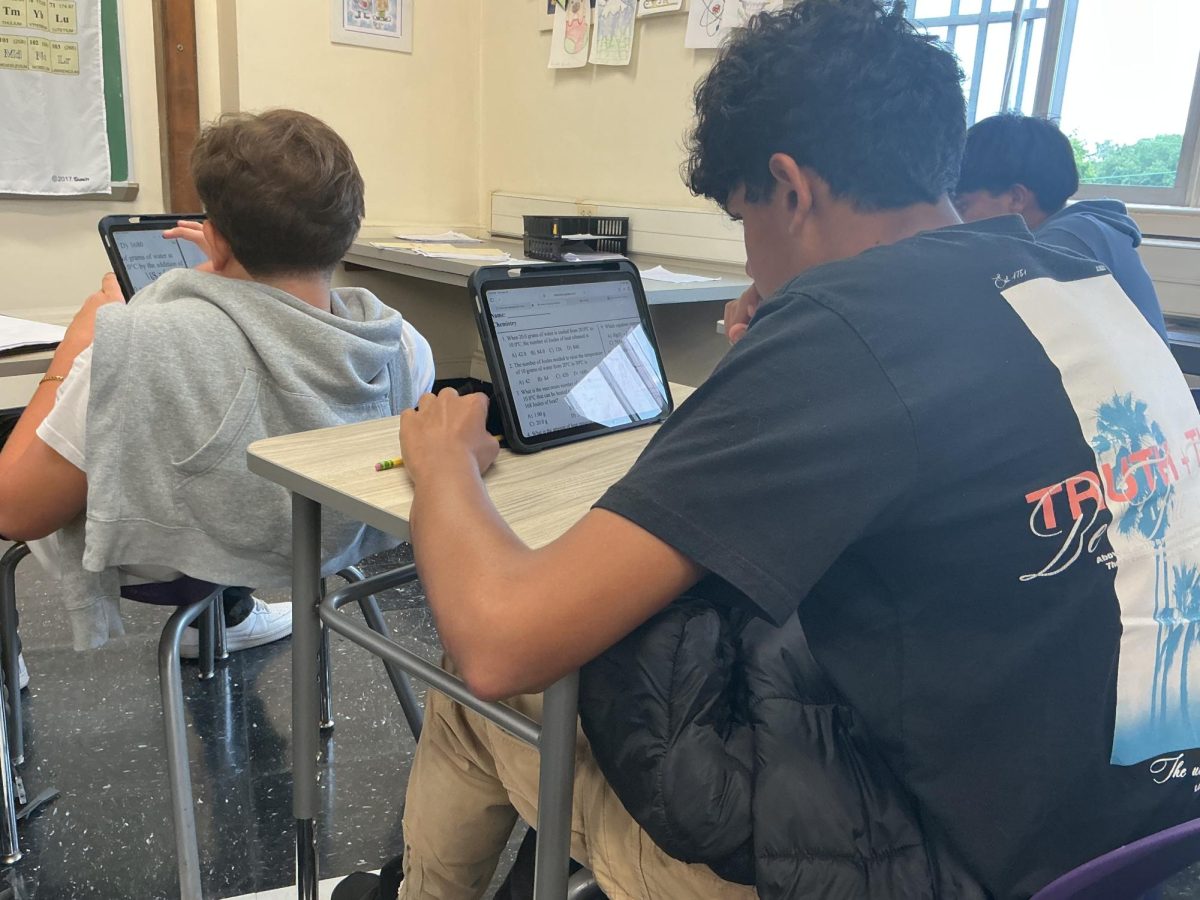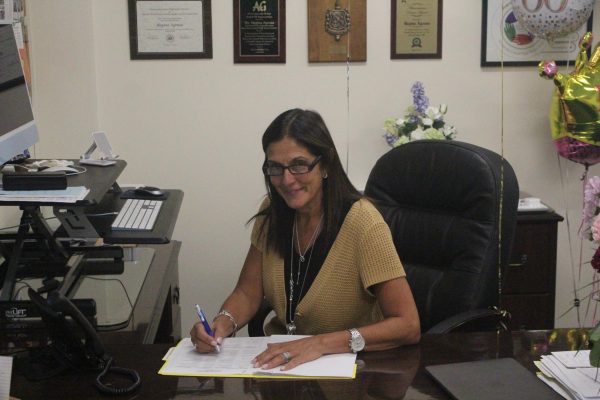
Since their invention, cell phones have played a key role in all of our lives. Most of us at Sewanhaka High School have never known a world without them. It has become an extension of ourselves, a third hand essentially. But have we come to rely, and even depend, on our phones too much? Have they become a distraction? On May 6, 2025, New York governor Kathy Hochul announced that all the schools in the state of New York will be adopting a cell phone ban for the upcoming school year. “While people may not realize it now, this is going to be transformational for our children and their ability to actually start learning again in school,” said the Governor in an ABC7 interview.
Hochul issued a ‘bell-to-bell’ ban on all cell phones and other personal electronic devices, meaning that from first period to ninth period, they are not to be taken out or used. Regarding the difficulty of enforcing such a strict policy, John Kenny, the principal of Sewanhaka High School said, “You got to teach bell to bell engagement, and that’s gonna be a challenge, but that’s something that we have to do. And it’s something that you guys deserve. So we’ll require school wide effort.” District superintendent Regina Agrusa mentioned, “When I first heard of the governor’s intention to ban cell phones in all public schools in New York State, I said to myself ‘Wow, that’s going to be really, really hard.’ I thought that cell phones were a part of teenage behavior…They exist within such close proximity to their phones, it’s the way they live, it’s the way they communicate.”

But one must ask themselves if such Herculean effort is worth it. Do cell phones actually have an effect on students’ academic performance? The research says yes. The study The Impact of Smartphone Use on Course Comprehension and Psychological Well-Being in the College Classroom by Melissa Huey and David Giguere found that, “Within the classroom, smartphones can often be a cause of distraction, as students use the phone during class to check social media (Gupta & Irwin, 2016), multi-task (Sana et al., 2013), or contact friends (Tindell & Bohlander, 2012). These activities deflect from instruction, and impede student learning.” Another study by the Pew Research Center states, “High school teachers are especially likely to see cellphones as problematic. About seven-in-ten (72%) say that students being distracted by cellphones is a major problem in their classroom, compared with 33% of middle school teachers and 6% of elementary school teachers.” With a ban on cell phones, students are able to focus on their schoolwork and what the teacher is trying to say.
This was further corroborated by Mr. Nick Rawls, a social studies teacher at Sewanhaka High School. He says, “The cell phones were pretty major distractions. So I feel like the classroom has been, not totally free of distractions, but I do feel like distractions are lessened.” Sophia George, a tenth grade student at Sewanhaka added, “I think that the phone ban will help students focus and boost their grade averages.” There are also the social ramifications of cell phones in schools. In an interview with ABC News, Kristina Dvorakovskaya, the principal of Urban Assembly Gateway School for Technology, is quoted as saying, “Returning from COVID there was this lack of socialization that was happening between kids, and we noticed that right away. Kids were not talking to one another, kids were in classes and didn’t even know each other’s names.” Ever since the ban on cell phones, the interaction between students has increased exponentially. Mr. Kenny says, “I just see kids interacting more.
I mean, I do see kids on their iPad, but I really see that kids are interacting more. I think they’re laughing more. and not focused on their phone, which I think is very important.”
As with most things in life, the phone ban will be what you make of it. You can buck and kick and scream as much as you want. You can even take your phone out. The teachers will simply ask you to put it away, and if you refuse, they will mark it in Infinite Campus, which will affect your grade. You can do all that, but why not give it a chance? See if you feel a difference. A difference in your mental health, a difference in your grades, a difference in the way you interact with your friends, a difference in your perspective. You may be surprised, not only by yourself, but by your peers as well. Each one of us is capable of much more than we think. There is no doubt in my mind that each and every one of us can do this. It just requires effort and patience. We all sow what we reap, and if we plant the seeds of change in our day-to-day lives, then we will surely reap the benefits.